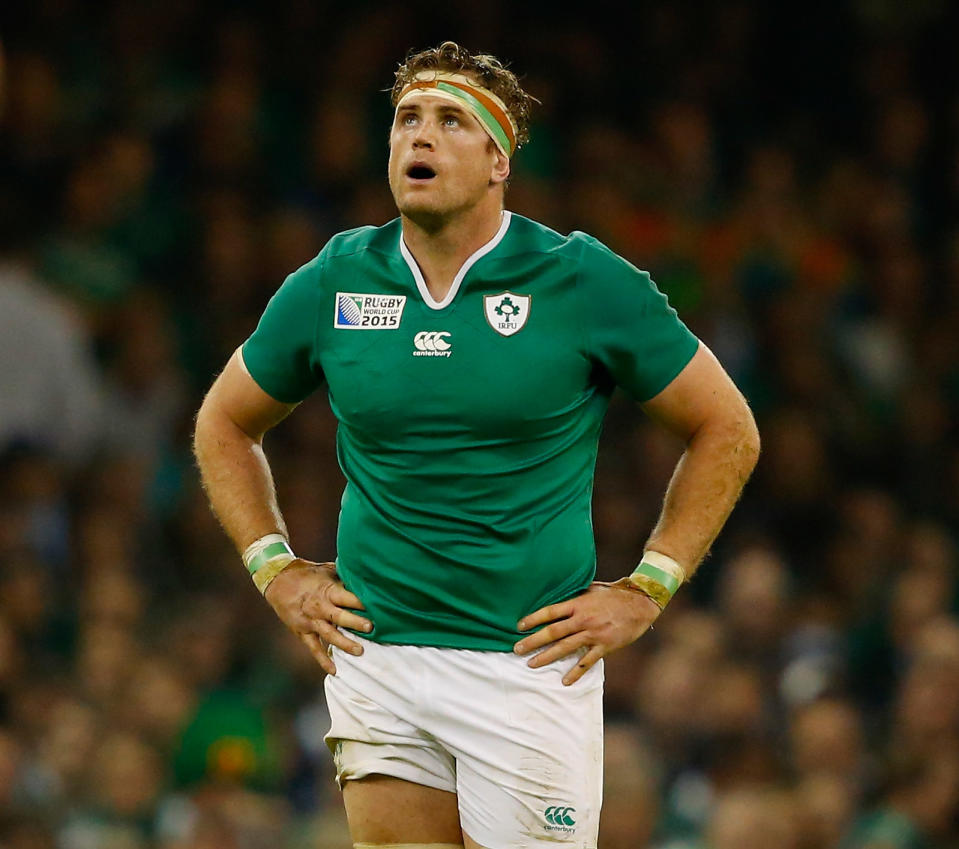Rugby World Cup: Why do southern hemisphere teams dominate?

“To the King in the North!” they often cry. But when it comes to the Rugby World Cup, the Game of Thrones is played in the south.
South Africa’s brutal 32-12 defeat of England in Saturday’s final in Japan made it eight World Cup victories for southern hemisphere sides out of nine competitions.
The anomaly in this comprehensive trend is England’s famous victory in 2003 - the immortal left boot of Jonny Wilkinson securing a dramatic win over Australia - the one and only time the Webb Ellis Cup has ventured north of the equator.
South Africa and New Zealand share top spot with three World Cups each, while Australia have twice claimed the crown. Look at the list of finalists however, and England and France have both lost out at the final hurdle three times each.
READ MORE: Meet the sports photographer bringing the game to life
READ MORE: Rugby World Cup 2019: best photos from the group stages
Indeed there have only ever been two all-southern hemisphere finals: South Africa’s iconic 1995 win on home soil over New Zealand (a moment captured so poetically with images of Nelson Mandela and the victorious and united Springboks), and the All Blacks’ comfortable victory over the Wallabies at Twickenham four years ago.
So with six runners-up places between England and France, and the likes of Wales and Ireland proving they can beat any team on their day - Ireland became the first northern hemisphere team to stop the All Blacks scoring a try in over 20 years last autumn - why is the Rugby World Cup so dominated by the tri-nations of the southern hemisphere?
“There are loads of different macro reasons,” explains former Ireland captain Jamie Heaslip, speaking exclusively to Yahoo Sport UK.
“We could talk about global seasons, we talk about metal games, we could talk about all sorts of different reasons and excuses when it comes to this.”

Heaslip, who has 95 caps for Ireland and only recently retired due to injury, threatens to provide a clear explanation but truthfully, and by his own admission, he’s stumped and unconvinced.
“I’m trying to find reasons here [for why southern hemisphere teams dominate]. The northern hemisphere season ended in May, they all got into camps in June, so they all had plenty of preparation time coming into Japan.”
READ MORE: Dream shot: the story behind an iconic rugby photo
One man who led a southern hemisphere side to glory is South Africa’s John Smit. The hooker steered the Springboks to the 2007 title, but is not convinced the dominance in silverware is reflective of the actual state of play either side of the equator.
“I think that it’s purely just something that's happened over the past, maybe it's the emphasis that the southern hemisphere put on the game from a club and local point of view and that created a better international set up.”
Smit’s international success ran parallel with stints at Clermont and Saracens, giving him good insight into how latitude impacts the game.

“I have now played in France and I have played in England, and it's not about them catching up anymore. They have more funds, they have excellent coaching, they have good players, and they prepare well.
“I think there's far more parity in world rugby now than ever before and I think that's a good thing.”
While the fictional fight for power with dragons and the undead may be over, the war in the rugby world rages on between the north and the south.
The 2023 tournament takes place in France. No matter the winner, with a northern hemisphere country hosting late in the year, one thing is sure immediately after the winner is crowned - winter is coming.
John Smit and Jamie Heaslip were talking on behalf of HEINEKEN.
HEINEKEN is a Worldwide Partner of Rugby World Cup 2019 in Japan, and HEINEKEN’s relationship with World Rugby is one of the most recognisable and longest-standing partnerships in sport.
The Rugby World Cup 2019 gives fans around the world an opportunity to engage with the tournament through Heineken’s ‘Universal Language of Rugby’ campaign. #HeinkenRugby

 Yahoo Sport
Yahoo Sport 





































